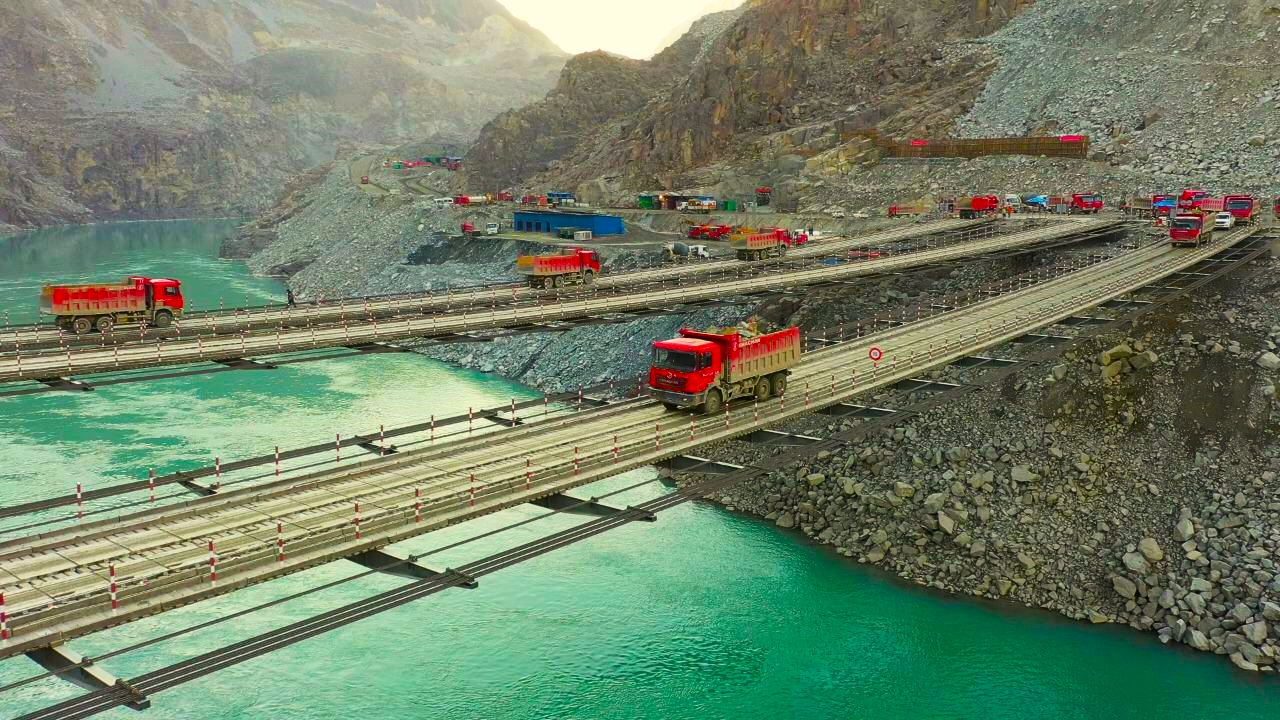DBDP, a nursery of Hydrology Engineers

Diamer Basha Dam site seen from the left bank of River Indus. [Picture/Wapda]
GILGIT, Apr. 18 (Gwadar Pro) - With the completion of the ongoing mega hydropower projects in Pakistan, the country will add millions of acre feet (MAF) of water storage and thousands of MW of hydel power to the national grid, and these projects are also bringing a crop of hydroelectric engineers in the country.
Currently, Chinese companies in joint ventures are executing mega hydropower projects in Pakistan, including Diamer Basha Dam Project (DBDP), Mohmand Dam and Hydropower Project (MDHP), Dasu Hydropower Project (DHPP), etc. These projects allow young Pakistani engineers to learn and share their experiences with foreign experts, especially Chinese engineers. Young engineers who get training from Chinese engineers have bright prospects, as Pakistan has immense potential for hydropower generation.
“DBDP has so far created 16,500 jobs and will be training more than 1000 engineers,” said Pakistan Water and Power Development Authority (WAPDA) Chairman Lt Gen Muzammil Hussain (Retd), while briefing Prime Minister Shehbaz Sharif on the progress of the project on Sunday.
Mr. Muzammil Hussain said, “Putting together DBDP and Mohmand and Dasu, Pakistan would have a new crop of engineers on hydrology and about 1,600 of them will be taking Pakistan’s future”.
WAPDA is implementing a multi-pronged strategy for unprecedented hydropower and water storage development in Pakistan under the vision of “Decade of Dams”. The low-cost hydel electricity -which stands at 9406 MW at present. The Government plans to uplift its existing 30% to at least 50% in the National Grid.
Hydrology engineers have a bright future in Pakistan, as WAPDA is currently constructing as many as 10 mega projects to help ensure water, food and energy security of Pakistan. Collectively, these projects are expected to create 35,000 employment opportunities as well as contributing significantly towards socio-economic uplift of underdeveloped areas. For example, DBDP, which is expected to be completed in 2029 will save Pakistan US$ 2.5 billion every year and will irrigate 1.2 million acres of land.



 1
1